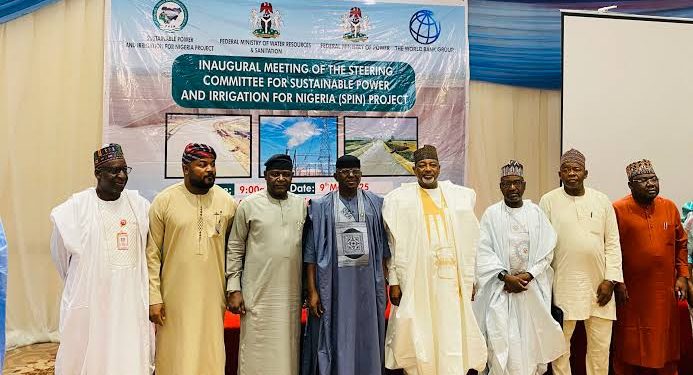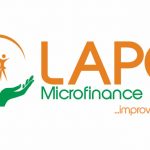The Federal Government has officially inaugurated the Steering Committee for the Sustainable Power and Irrigation for Nigeria (SPIN) project, a $500 million World Bank-supported initiative aimed at enhancing food security, energy generation, and climate resilience through integrated water and power infrastructure.
Speaking at the committee’s inaugural meeting in Abuja, Minister of Water Resources and Sanitation, Joseph Utsev, said the project aligns with the Renewed Hope Agenda of President Bola Tinubu and marks a new phase in Nigeria’s drive for sustainable development. He co-chairs the committee with the Minister of Power.
According to Utsev, SPIN builds on the achievements of the Transforming Irrigation Management in Nigeria (TRIMING) project, which rehabilitated 32,000 hectares of irrigation schemes and empowered local Water Users Associations (WUAs). The SPIN initiative aims to significantly scale this impact, targeting the development of 500,000 hectares of irrigated farmland, generating up to 30 Gigawatts of sustainable energy, and boosting Nigeria’s resilience to floods, droughts, and other climate-related risks.
The minister outlined four components of the project: Institutional Strengthening, Irrigation Modernization, Dam Safety and Operational Improvements, and Effective Project Management. SPIN will be executed under two operational models. The first focuses on federal government-managed schemes in partnership with willing states, while the second supports state-led irrigation systems.
Out of 34 states that expressed interest in joining the project, 27 pledged to meet the readiness benchmarks. So far, 17 have fulfilled key requirements including enacting Water Users Association legislation, allocating budgetary provisions for WUA operations and maintenance, and providing counterpart funding.
Utsev praised the SPIN Interim Team for their preparatory work, which includes field assessments and the development of a Project Appraisal Document, Implementation Manual, and 18-month action plan. He said the newly inaugurated Steering Committee—comprising ministers and commissioners from participating states—will serve as the top decision-making body overseeing the project’s rollout.
Also speaking at the retreat, Minister of Agriculture and Food Security, Senator Abubakar Kyari, stressed the need for measurable results in every development initiative. While praising the World Bank’s consistent support for Nigeria, Kyari urged stakeholders to focus on concrete outcomes that directly benefit Nigerians, especially in the agricultural sector.
“In every programme we implement—whether within our ministries or with international partners—we must ask: What specific results will this deliver?” he asked.
Kyari called for clarity on expected outcomes, especially regarding increased food production and rural livelihoods. He also challenged stakeholders to view Nigeria’s rapidly growing population not as a burden, but as a potential driver of innovation, productivity, and long-term economic growth.
“Strategic planning and the right investments can turn our demographic expansion into an engine of national transformation,” he said, adding that the SPIN project has the potential to do just that if implementation stays focused and accountable.
The SPIN initiative, with its dual emphasis on sustainable energy and agricultural modernization, is seen as a critical component of Nigeria’s broader strategy to diversify its economy, improve infrastructure, and tackle climate vulnerabilities. As implementation begins, success will depend on collaboration among federal and state actors, active community involvement, and a results-driven approach.










